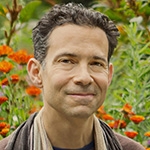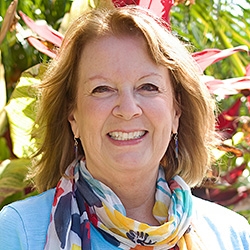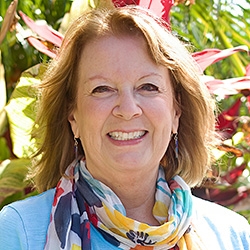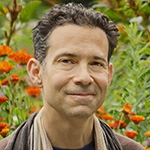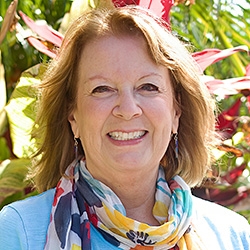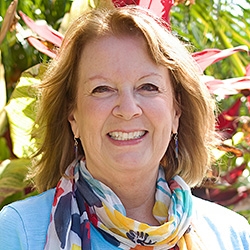

Search Results: liberation
-
Bring NVC beyond personal growth, explore perspectives that transform how we respond to crisis.
-
We can choose our stories of interpretation, and how to respond. And while stories of self-sufficiency can (to a degree) give us more influence over our own lives, they don't erase oppression, war, nor climate change. When stories omit a lens that includes impacts of interdependence, oppression, and structural inequities, stories can also keep us disconnected and blocked from compassion for self and others -- and perpetuating an oppressive status quo. However, with this lens we can make greater compassion and collective liberation possible. Even as the outcome is unknown.
-
Working for racial justice is a shift in perspective—a shift in understanding and empathy that leads to a change in our actions: to listen instead of talk, to follow instead of lead, to yield rather than dominate. And to accept that I will continue to mess up. Part of working to undo racism is having the humility to know when our own understanding is limited. Read on for more this, and how it relates to meditation -- plus personal and collective liberation.
-
Create your own new personal practice using the Pathways to Liberation: Matrix of Self-Assessment and increase your capacity to access skills when you need them the most.
-
Clarity leads to compassion and empowerment with Robert's approach to NVC and transformation.
-
Trainer Tip: It can be painful spending our days pretending we’re not who we are. For example, we may try not to be passionate in our expression because if we think its “too much” for people. This can lead to trying to figuratively to squeeze ourselves into small spaces in life. Alternatively, we can choose who to share our passion with, and speak our truth to. Today, notice what you need and to work actively to meet your needs.
-
How can we live up to our true potential, a life filled with relationships and experiences that truly meet our needs? In this article, Mary offers us a way to bring about inner transformation that can lead to seeing ourselves, others and life differently -- for greater agency, empowerment and choice.
-
We're more likely to sacrifice trust, connection, and relationship quality when (1.) We use NVC to focus on being seen, understood, heard, or meeting our own needs in a way that eclipses our view and understanding of others needs; (2.) We don't clearly examine our intentions; and (3.) We use the NVC form so rigidly that it becomes difficult for others to connect with us authentically.
-
When Anita's sister reveals that the Ku Klux Klan broke into her home and dragged her out into a field towards a burning cross, Anita's commitment to nonviolence is challenged. Here, Miki highlights practices and lessons from her story of inner struggle -- including an insight about how, even in extreme polarization, our freedom and healing is wrapped up in others' freedom and healing.
-
Our world trains us to think in terms of providing for everyone’s needs because they deserve it, earned it, or they possess the resources -- it's fair, socially just, supports equality or because people have rights. Instead, can we step outside this worldview to look at providing for everyone’s needs because those needs exist -- can we hold this basic reverence for life? Are we able to have a needs-based dialogue when such a reframe could alienate those who live in the worldview of earn/deserve?
-
Physical distancing is opportunity to creatively to meet your needs in new ways. In this containment, with very few cues from others and the environment you now have a rare opportunity with less external distraction to rethink what's truly supportive -- and make significant changes to the less noticable habits of mind, standards and "should's". Applying questions and noticing certain symptoms can support. Read on for more.
-
Trainer Tip: We feel our freedom when we are willing to look at others’ needs and our own, evaluate all of them and work toward valuing everyone’s needs. Take the time to demonstrate that you value everyone’s needs as much as your own today.
-
Trainer Tip: Censoring oneself to maintain peace may seem easier, but it actually requires significant energy. You can free up that energy you use to deny and stuff down your feelings, needs, desires, truth, and figure out and adjust to what others want. Embracing authenticity and expressing true feelings and needs can lead to a liberating experience, unlocking joy, love, and endless possibilities.
-
Listen to Robert describe the five core principles of Living Compassion and the relationship of needs to spirituality. Great material for reflection and reference!
-
When we have an inner conflict, how can we bring ourselves closer where we want to be? Miki explains about how we can deepen our self understanding in a way that can transform our own reactivity, urges, and false either/or views -- so that we can bring in more presence, choice, and options.
-
What is it that we are taught we can’t have, and what is it that we are encouraged to pursue instead? This guide could help you see through what's hidden behind the curtain of our societal conditioning.
-
During the holiday season we may find ourselves taking responsibility for other's feelings, which can lead to guilt, shame, depression, and resentment. These feelings are exacerbated by the habitual pattern we call the "Vortex of Submission" (being hooked by a sense of duty and obligation). Read on for ways to recognize and break the pattern.
-
Here's a four step exercise applying a needs-based approach to effective goals, habits and New Year's Resolutions.
-
What can we do to bring vitality and resourcefulness back into our lives when we are feeling overwhelmed, depressed, anxious, or frustrated? Read on for a nine step process.
-
Do you just keep going with a task, even if your body is screaming for a pause? Maybe you leave tasks incomplete because you can't finish them the way you want? Do you not even attempt some tasks because you know that you won't be able to do them perfectly? In short, are you a perfectionist? In this Life Hack, we look at 5 tips to help any recovering perfectionists.

Quick Links
Subscription Preferences
Stay In Touch!
Looking for ways to keep up with NVC Academy news, get special offers, free resources, or words of inspiration? Here are five ways to stay engaged:



